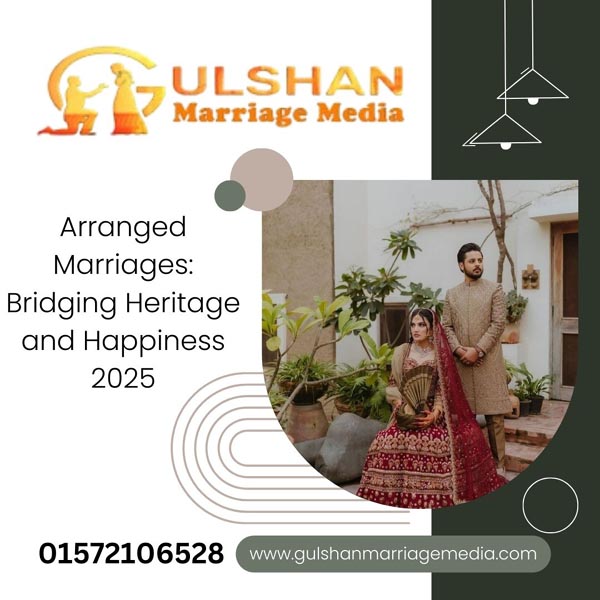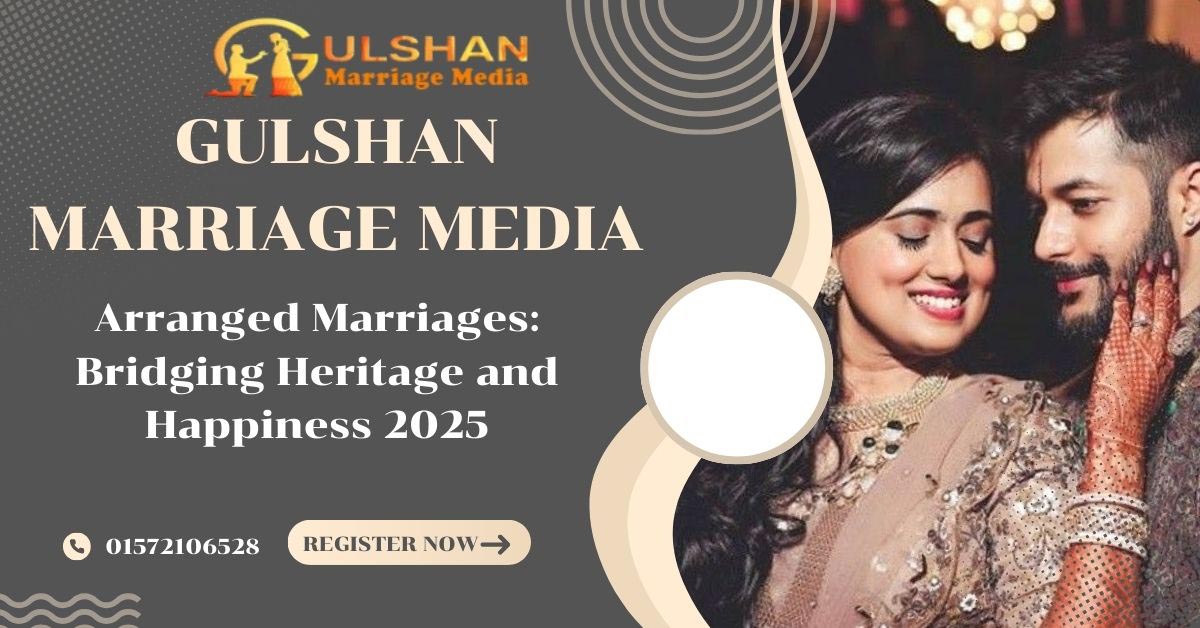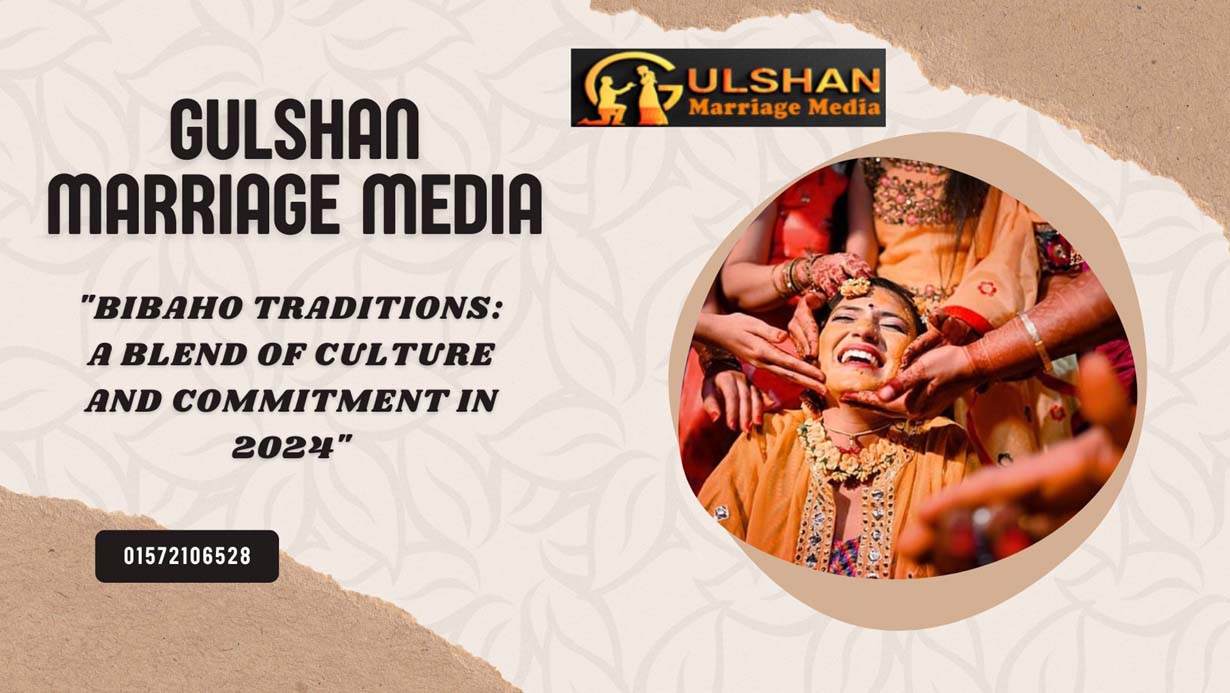Arranged Marriages: Bridging Heritage and Happiness 2025
Arranged Marriage, a cornerstone of human society, has long blended tradition, culture, and personal choice. Among the myriad ways unions are formed, arranged marriages are a testament to the enduring interplay between heritage and happiness. While often misunderstood or misrepresented in popular narratives, arranged marriages embody a complex, nuanced tradition that continues to thrive in many cultures around the globe.
This essay delves into the intricacies of arranged marriages, exploring their historical roots, cultural significance, evolving practices, and their potential to harmonize familial values with personal happiness.
Historical Roots of Arranged Marriages
Arranged marriages trace their origins to ancient societies where family alliances were paramount. In many early civilizations, marriages served as strategic tools to consolidate power, secure alliances, and preserve wealth. The concept was less about individual preferences and more about community cohesion and economic stability.
For instance, in medieval Europe, royal families often arranged marriages to fortify political alliances. Similarly, in South Asia, arranged marriages were deeply embedded in the caste system, ensuring social stratification and cultural continuity. In many African and Middle Eastern cultures, tribal and familial considerations played a significant role in matchmaking, emphasizing collective well-being over individual choice.
While these historical practices might seem archaic to modern sensibilities, they highlight the foundational idea that marriage was seen as a union of families rather than just individuals.
Cultural Significance of Arranged Marriages
Arranged marriages hold significant cultural importance in many societies, particularly in South Asia, the Middle East, and some parts of Africa. Here are some key aspects of their cultural significance:

- Family and Community Values: Arranged marriages are often seen as a way to strengthen family ties and uphold community values. The emphasis is on finding a suitable partner who aligns with the family’s expectations and traditions.
- Social Stability and Continuity: Arranged marriages contribute to social stability by ensuring that marriages are formed within established social networks and structures. This helps maintain social order and continuity of traditions.
- Practical Considerations: Arranged marriages are often seen as a practical way to find a suitable partner, especially in cultures where dating and courtship may not be as common. Families and matchmakers play a crucial role in assessing compatibility and suitability.
- Emphasis on Shared Values and Backgrounds: Arranged marriages often prioritize finding partners with similar cultural backgrounds, social status, and religious beliefs. This is seen as a way to ensure compatibility and long-term happiness.
- Role of Elders and Family: Elders and family members play a significant role in the process of arranged marriages, providing guidance and support to the individuals involved. Their experience and wisdom are highly valued in making important decisions.
It’s important to note that arranged marriages are not monolithic and vary significantly across different cultures and communities. While some cultures may emphasize more traditional approaches, others may incorporate elements of choice and personal preference.
In many societies, arranged marriages are deeply rooted in cultural and religious traditions. They are not merely transactional but are seen as sacred unions blessed by families and communities. Parents and elders, with their life experience and understanding of family dynamics, often play pivotal roles in selecting compatible matches.
- Preservation of Culture: Arranged marriages are a vehicle for preserving cultural heritage. They ensure that values, traditions, and practices are passed down through generations. By choosing partners who share similar cultural and religious backgrounds, families maintain their identity and foster a sense of continuity.
- Family Bonds: In many cultures, marriage is not just a union of two individuals but a merging of families. Arranged marriages strengthen familial bonds, as the process involves active participation and mutual agreement among families.
- Guidance and Wisdom: Elders often bring wisdom and insight to the matchmaking process, assessing compatibility based on factors such as family background, education, values, and long-term goals.
The Evolution of Arranged Marriages
Arranged marriages have undergone a significant evolution over time, reflecting societal changes and individual preferences.
- From Forced Unions to Negotiated Partnerships: Traditionally, arranged marriages often involved little to no individual choice, with families primarily focused on factors like social status and economic benefits. Today, arranged marriages increasingly emphasize compatibility, shared values, and individual consent.
- The Rise of Matchmaking and Courtship: While families still play a crucial role, matchmaking has evolved from a passive process to one involving active participation by individuals. Courtship periods allow potential partners to get to know each other, fostering a sense of personal connection.
- Influence of Modernization and Globalization: Urbanization, education, and exposure to Western cultures have led to a shift towards more individualistic values. This has resulted in a greater emphasis on personal choice and compatibility in arranged marriages.
- Role of Technology: Online platforms and social media have revolutionized matchmaking, providing access to a wider pool of potential partners and facilitating communication across geographical boundaries.
- Diversity in Practice: Arranged marriages continue to be practiced in various forms, ranging from traditional family-led arrangements to more modern approaches that prioritize individual autonomy.
It’s important to note that the evolution of arranged marriages is not linear and varies across cultures and communities. While some cultures may maintain more traditional practices, others have embraced more modern approaches that balance family values with individual choice.
While traditional arranged marriages emphasize parental authority and familial considerations, the practice has evolved significantly in contemporary times. Modern arranged marriages often strike a balance between tradition and individual choice.
- Introduction of Consent: In many cultures today, the prospective bride and groom have the final say in accepting or rejecting a proposed match. This shift ensures that personal happiness and compatibility are prioritized.
- Role of Technology: The advent of technology has revolutionized arranged marriages. Matrimonial websites and apps have emerged as modern matchmaking platforms, allowing individuals and families to connect based on detailed profiles and preferences. Platforms like Shaadi.com in India or Kabinbd in Bangladesh exemplify this blend of tradition and technology.
- Globalization: With increased mobility and cross-cultural interactions, arranged marriages are no longer confined to local communities. Families now consider matches from diverse geographic and cultural backgrounds, broadening the horizons of arranged unions.
- Hybrid Models: The lines between arranged and love marriages have blurred, giving rise to what is often called “arranged-love marriages.” In these cases, families introduce potential matches, but the individuals take time to build a relationship before committing.
Addressing Misconceptions about Arranged Marriages
Misconception: Arranged marriages are forced unions where individuals have no say.
Reality: While traditional arranged marriages may have involved less individual choice, modern arranged marriages often involve a process of matchmaking and courtship where individuals have the opportunity to meet, interact, and decide if they are compatible. Consent is increasingly emphasized in contemporary arranged marriages.
Misconception: Arranged marriages are based solely on family and societal pressure, disregarding individual feelings.
Reality: While family and societal values are important, arranged marriages also consider individual preferences, compatibility, and shared values. The goal is to find a suitable partner who can contribute to a fulfilling and lasting relationship.
Misconception: Arranged marriages are outdated and incompatible with modern values.
Reality: Transactional marriages continue to be practiced in many cultures, adapting to changing times. They can be seen as a way to preserve cultural traditions while incorporating individual choice and agency.
Misconception: Transactional marriages always lead to unhappy relationships.
Reality: Research suggests that arranged marriages can be as successful and fulfilling as marriages based on romantic love. Factors like shared values, mutual respect, and effective communication play a crucial role in the success of any marriage, regardless of how it is arranged.
It’s important to remember that arranged marriages are diverse and vary across cultures. Understanding the nuances and complexities of this practice can help dispel misconceptions and promote a more informed perspective.
Arranged marriages are often criticized for being regressive or oppressive, particularly in Western narratives. However, it is essential to distinguish between consensual arranged marriages and forced marriages, which are a violation of human rights.
- Choice vs. Coercion: Modern transactional marriages emphasize choice. The involvement of families does not negate the autonomy of the individuals involved. On the contrary, it provides a support system that can enhance marital stability.
- Compatibility over Romance: While love marriages often prioritize romantic attraction, transactional marriages focus on compatibility, shared values, and long-term goals. Over time, many couples in arranged marriages develop deep, enduring love based on mutual respect and understanding.
- Diverse Practices: Transactional marriages vary widely across cultures and communities. It is a mistake to generalize the practice or judge it based on isolated instances of abuse or coercion.
The Role of Communication and Compatibility
One of the key factors contributing to the success of arranged marriages is the emphasis on compatibility. Families often assess factors such as:
- Educational Background: Shared educational experiences can foster mutual respect and understanding.
- Religious and Cultural Values: Aligning on fundamental beliefs and practices ensures harmony in daily life.
- Long-term Goals: Compatibility in aspirations, such as career ambitions or family planning, lays a solid foundation for the future.
Effective communication is another cornerstone of successful arranged marriages. Couples are encouraged to discuss their expectations, values, and aspirations before committing, ensuring a transparent and honest foundation.
The Intersection of Heritage and Happiness
The relationship between heritage and happiness is a complex one, with both positive and negative aspects.
Positive Aspects:
- Sense of Belonging: Heritage can provide a strong sense of identity and belonging, connecting individuals to their ancestors, traditions, and communities. This can foster a feeling of rootedness and purpose.
- Meaning and Purpose: Engaging with heritage, whether through cultural practices, traditions, or historical exploration, can provide a sense of meaning and purpose in life. It can offer a framework for understanding the present and shaping the future.
- Community and Connection: Heritage can be a powerful tool for building community and fostering social connections. Shared cultural experiences and traditions can bring people together and strengthen bonds.
- Resilience and Adaptation: Heritage can provide a source of resilience and adaptability in the face of change and adversity. It can offer a framework for understanding the past and adapting to new challenges.
Negative Aspects:
- Loss and Trauma: Heritage can also be associated with loss and trauma, particularly for marginalized or oppressed groups. The legacy of colonialism, slavery, or other historical injustices can have a lasting impact on individuals and communities.
- Identity Conflicts: For individuals with multiple or conflicting cultural identities, heritage can be a source of confusion or conflict. Navigating different cultural expectations and traditions can be challenging.
- Exclusivity and Discrimination: Heritage can sometimes be used to exclude or discriminate against others, leading to social division and conflict.
- Pressure to Conform: The pressure to conform to traditional cultural norms can be a source of stress and anxiety, particularly for individuals who do not fit neatly into the cultural mold.
The relationship between heritage and happiness is complex and multi-faceted. While heritage can be a source of great joy, meaning, and connection, it can also be a source of pain, conflict, and identity challenges. Understanding the nuances of this relationship is essential for navigating the complexities of our cultural identities and building a more inclusive and equitable society.
At their best, transactional marriages bridge the gap between heritage and happiness. They honor cultural traditions while adapting to the needs and aspirations of modern individuals. When approached with mutual respect and open-mindedness, transactional marriages can be deeply fulfilling.
- Respecting Heritage: By involving families and adhering to cultural practices, transactional marriages uphold traditions that have been cherished for generations.
- Fostering Happiness: The collaborative nature of transactional marriages often creates a robust support system. Couples benefit from the guidance and blessings of their families, enhancing their emotional well-being.
- Building Lasting Bonds: With a focus on compatibility and shared values, transactional marriage often result in strong, enduring relationships. The emphasis on long-term commitment fosters resilience and mutual respect.
Challenges and Opportunities
Like any institution, transactional marriage are not without challenges. Misaligned expectations, generational gaps, and external pressures can create tensions.
Promoting Dialogue: Open communication between families and individuals is crucial to addressing misunderstandings and ensuring a harmonious process.
- Educating Communities: Raising awareness about the distinction between arranged and forced marriages can help dispel stereotypes and promote positive practices.
- Adapting to Change: As societies evolve, so too must the practices surrounding transactional marriage. Embracing flexibility and individual autonomy ensures that the tradition remains relevant and meaningful.
Conclusion
Arranged marriages, far from being relics of the past, continue to thrive as dynamic, adaptive institutions. They represent a unique confluence of heritage and happiness, blending the wisdom of tradition with the aspirations of modern individuals. By honoring cultural values while embracing change, transactional marriage demonstrate the enduring power of love and commitment to bridge generations and build lasting bonds.
In a world that often emphasizes individualism, transactional marriage remind us of the beauty of community, the strength of family, and the importance of shared values. When approached with mutual respect and open hearts, they have the potential to create unions that are not only deeply rooted in heritage but also rich in happiness and fulfillment.
Arranged Marriage in Bangladesh
বিয়ে সংক্রান্ত যেকোনো তথ্য,সেবা এবং পরামর্শ পেতে যোগাযোগ করুন গুলশান মিডিয়ার সাথে। ” কল করুন: 01572106528























